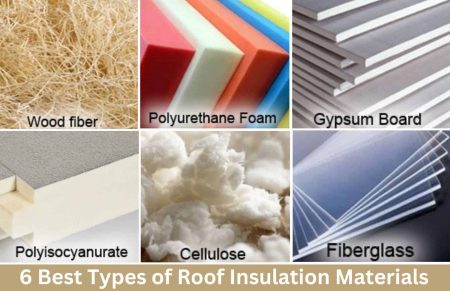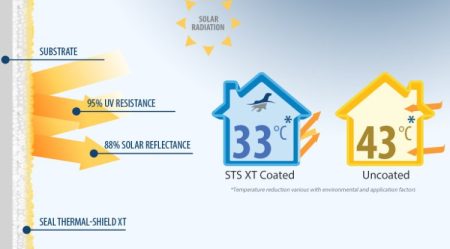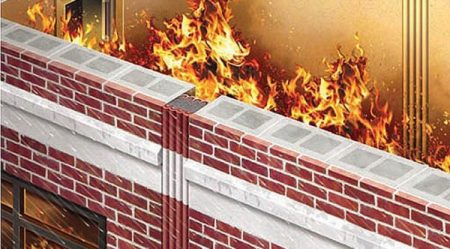The Role of Engineers in Radiation Isolation Implementation
Radiation isolation is a critical aspect of various industries, including healthcare, nuclear power, and industrial settings. Engineers play a crucial role in the implementation of effective radiation isolation measures. In this article, we will explore the importance of engineers in radiation isolation, their responsibilities, and the skills required to ensure the safe handling and containment of radiation.
Contents
- 1 Understanding Radiation Isolation
- 2 1. Designing Radiation Shielding
- 3 2. Risk Assessment and Analysis
- 4 3. Safety Protocol Development
- 5 4. Equipment Design and Calibration
- 6 5. Quality Assurance and Compliance
- 7 6. Training and Education
- 8 7. Emergency Response Planning
- 9 8. Continuous Improvement and Research
- 10 9. Collaboration with Multidisciplinary Teams
- 11 10. Adherence to Ethical Standards
- 12 The Role of Engineers in Radiation Isolation Implementation
- 13 Frequently Asked Questions
Understanding Radiation Isolation
Radiation isolation involves implementing measures to prevent the spread of radiation and minimize exposure to it. This is essential to protect human health, the environment, and ensure the safety of workers and the public. Engineers contribute their expertise to develop and implement radiation isolation strategies that comply with regulations and industry standards.
1. Designing Radiation Shielding
Engineers are responsible for designing and implementing radiation shielding systems. They utilize their knowledge of materials and radiation physics to create effective barriers that absorb or deflect radiation. These shielding systems protect individuals and sensitive equipment from unnecessary exposure.
2. Risk Assessment and Analysis
Engineers conduct thorough risk assessments and analysis to identify potential radiation hazards and their associated risks. They evaluate the potential sources of radiation, study the effects of radiation on human health, and develop strategies to mitigate risks. This ensures that radiation isolation measures are tailored to specific environments and industries.
3. Safety Protocol Development
Engineers collaborate with experts to develop safety protocols and guidelines for radiation-related activities. They ensure that workers are aware of the necessary precautions and procedures to follow when working with radiation sources. These protocols include proper handling, storage, disposal, and emergency response measures.
4. Equipment Design and Calibration
Engineers are involved in the design, development, and calibration of radiation monitoring equipment. They ensure that the equipment used to detect and measure radiation levels is accurate, reliable, and properly calibrated. This enables accurate monitoring and assessment of radiation levels in various environments.
5. Quality Assurance and Compliance
Engineers establish quality assurance programs to ensure compliance with radiation safety regulations and industry standards. They perform regular inspections and audits to verify that radiation isolation measures are implemented correctly. Continuous monitoring and evaluation help identify areas for improvement and ensure ongoing compliance.
6. Training and Education
Engineers play a vital role in training workers on radiation safety practices. They develop training programs to educate personnel about the risks associated with radiation, proper use of protective equipment, and adherence to safety protocols. Effective training programs promote a culture of safety and enhance awareness among workers.
7. Emergency Response Planning
Engineers contribute to emergency response planning, specifically concerning radiation-related incidents. They collaborate with emergency management teams to develop strategies for evacuations, decontamination, and handling potential radiation emergencies. Their expertise ensures a coordinated and efficient response to protect the safety of individuals and the environment.
8. Continuous Improvement and Research
Engineers engage in ongoing research and development to enhance radiation isolation practices. They stay updated on the latest technological advancements and industry trends to improve safety measures. By conducting research and participating in professional organizations, engineers contribute to the continuous improvement of radiation isolation techniques.
9. Collaboration with Multidisciplinary Teams
Engineers work closely with other professionals, including radiation safety officers, physicists, medical professionals, and regulatory authorities. They collaborate to ensure a comprehensive and multidisciplinary approach to radiation isolation. This collaboration fosters effective communication, knowledge sharing, and the implementation of best practices.
10. Adherence to Ethical Standards
Engineers in the field of radiation isolation are committed to upholding ethical standards. They prioritize the safety and well-being of individuals and the environment, ensuring that radiation isolation measures are implemented with integrity and professionalism.
The Role of Engineers in Radiation Isolation Implementation
Frequently Asked Questions
Q1: What is the role of engineers in radiation shielding? A1: Engineers design and implement radiation shielding systems to protect individuals and equipment from unnecessary radiation exposure.
Q2: How do engineers contribute to emergency response planning for radiation incidents? A2: Engineers collaborate with emergency management teams to develop strategies for evacuations, decontamination, and handling potential radiation emergencies.
Q3: What skills are essential for engineers involved in radiation isolation implementation? A3: Skills required include knowledge of radiation physics, materials science, risk assessment, safety protocols, equipment design, and collaboration with multidisciplinary teams.
Q4: How do engineers ensure compliance with radiation safety regulations? A4: Engineers establish quality assurance programs, conduct regular inspections and audits, and stay updated on regulations to ensure compliance with radiation safety standards.
Q5: Why is ongoing research and continuous improvement important in radiation isolation? A5: Ongoing research and continuous improvement help engineers stay updated on technological advancements and industry trends, leading to enhanced radiation isolation practices and improved safety measures.





